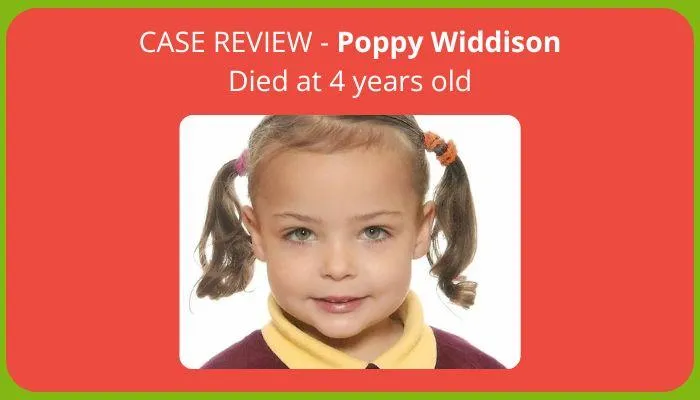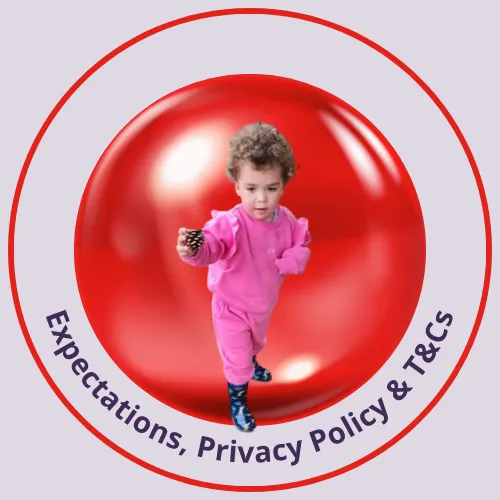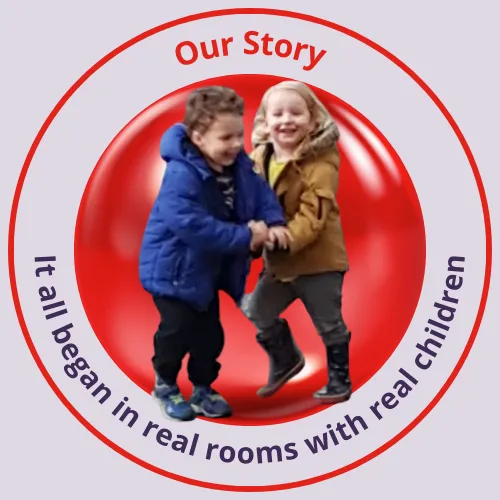Every child's well-being matters.
Case Review Articles
Quick access:
VICTIMS
ADULT ACTIONS
Alison Kelly – data issue
Amina Noor (FGM)
Quick access:
VICTIMS
ADULT ACTIONS
Alison Kelly – data issue
Amina Noor (FGM)

Poppy Widdison
Poppy Widdison was a four-year-old girl from Grimsby who tragically died in June 2013. Her mother, Michala Pyke, and her partner, John Rytting, were found guilty of child cruelty after it was revealed that Poppy had been administered various drugs over several months.
A Serious Case Review conducted by the North East Lincolnshire Local Safeguarding Children Board identified multiple missed opportunities by various agencies to protect Poppy.
Missed Opportunities and Prevention
The review highlighted several key areas where intervention could have occurred:
Prenatal Period: Pyke did not engage with prenatal care, and authorities were aware that Poppy's biological father was a drug user with a criminal history. Despite these concerns, no comprehensive parenting assessment or robust protection plan was implemented.
Postnatal Care: After Poppy's birth, there was a lack of effective management oversight and insufficient engagement from partner agencies. This led to a failure in understanding the daily risks Poppy faced, resulting in no single practitioner or service having a complete picture of her circumstances.
Disguised Compliance: The review warned of the dangers of "disguised compliance," where parents may give the appearance of cooperating with professionals while masking the reality of the child's situation. This led to professionals being misled, which eased the perceived risks to Poppy.
To prevent such tragedies in the future, the review recommended:
Improved Inter-Agency Communication: Ensuring that all agencies involved in a child's welfare share information effectively to build a comprehensive understanding of the child's situation.
Robust Risk Assessments: Implementing thorough assessments when risk factors such as parental drug use and failure to engage with services are identified.
Enhanced Training: Providing professionals with training to recognize and address disguised compliance, ensuring that they remain vigilant and inquisitive about a child's well-being.
By addressing these areas, agencies can work collaboratively to safeguard vulnerable children and prevent similar incidents.
AUTHOR:- Iona has nearly 10 years of experience supporting nurseries and childminders in curriculum planning, leadership, and safeguarding. Her writing is informed by public information and sector insight, aiming to provide accessible, practical support for professionals working with children. She is part of the On the Button team, helping deliver Well-being, Safeguarding and Complaint Management Software that empowers practitioners to identify concerns early and act confidently.
On the Button provides innovative software tailored to the needs of the early years sector, with a strong focus on EYFS well-being and early years safeguarding. Our tools help senior practitioners to confidently track concerns, maintain robust records, and respond effectively — all while meeting statutory guidance. From early years complaint management to team-wide safeguarding alerts, our platform puts children's safety and emotional health first.

Poppy Widdison
Poppy Widdison was a four-year-old girl from Grimsby who tragically died in June 2013. Her mother, Michala Pyke, and her partner, John Rytting, were found guilty of child cruelty after it was revealed that Poppy had been administered various drugs over several months.
A Serious Case Review conducted by the North East Lincolnshire Local Safeguarding Children Board identified multiple missed opportunities by various agencies to protect Poppy.
Missed Opportunities and Prevention
The review highlighted several key areas where intervention could have occurred:
Prenatal Period: Pyke did not engage with prenatal care, and authorities were aware that Poppy's biological father was a drug user with a criminal history. Despite these concerns, no comprehensive parenting assessment or robust protection plan was implemented.
Postnatal Care: After Poppy's birth, there was a lack of effective management oversight and insufficient engagement from partner agencies. This led to a failure in understanding the daily risks Poppy faced, resulting in no single practitioner or service having a complete picture of her circumstances.
Disguised Compliance: The review warned of the dangers of "disguised compliance," where parents may give the appearance of cooperating with professionals while masking the reality of the child's situation. This led to professionals being misled, which eased the perceived risks to Poppy.
To prevent such tragedies in the future, the review recommended:
Improved Inter-Agency Communication: Ensuring that all agencies involved in a child's welfare share information effectively to build a comprehensive understanding of the child's situation.
Robust Risk Assessments: Implementing thorough assessments when risk factors such as parental drug use and failure to engage with services are identified.
Enhanced Training: Providing professionals with training to recognize and address disguised compliance, ensuring that they remain vigilant and inquisitive about a child's well-being.
By addressing these areas, agencies can work collaboratively to safeguard vulnerable children and prevent similar incidents.
AUTHOR:- Iona has nearly 10 years of experience supporting nurseries and childminders in curriculum planning, leadership, and safeguarding. Her writing is informed by public information and sector insight, aiming to provide accessible, practical support for professionals working with children. She is part of the On the Button team, helping deliver Well-being, Safeguarding and Complaint Management Software that empowers practitioners to identify concerns early and act confidently.
On the Button provides innovative software tailored to the needs of the early years sector, with a strong focus on EYFS well-being and early years safeguarding. Our tools help senior practitioners to confidently track concerns, maintain robust records, and respond effectively — all while meeting statutory guidance. From early years complaint management to team-wide safeguarding alerts, our platform puts children's safety and emotional health first.




Facebook
Instagram
LinkedIn
Youtube